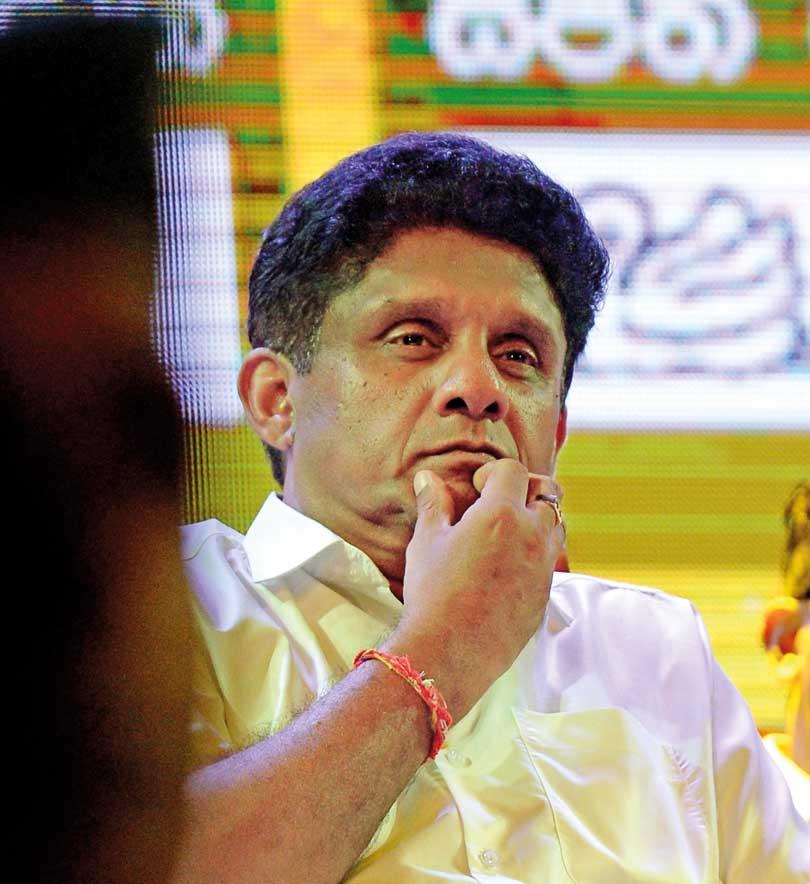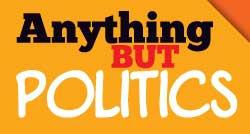Reply To:
Name - Reply Comment

 When Prime Minister Mahinda Rajapaksa hurried home after his defeat after the 2015 Presidential polls, his supporters crowded around his residence in Medamulana and urged him to make a comeback to politics. He listened to the call and abandoned plans of retirement from politics. After a couple of years, a new party called ‘Sri Lanka Podujana Peramuna (SLPP)’ was formed at his behest. He was appointed as its leader. He virtually left the SLFP in this manner. His SLPP turned out to be a serious political force replacing the Sri Lanka Freedom Party (SLFP) as the leading light of the left-of-centre forces. Today, the SLPP under his leadership is at the helm.
When Prime Minister Mahinda Rajapaksa hurried home after his defeat after the 2015 Presidential polls, his supporters crowded around his residence in Medamulana and urged him to make a comeback to politics. He listened to the call and abandoned plans of retirement from politics. After a couple of years, a new party called ‘Sri Lanka Podujana Peramuna (SLPP)’ was formed at his behest. He was appointed as its leader. He virtually left the SLFP in this manner. His SLPP turned out to be a serious political force replacing the Sri Lanka Freedom Party (SLFP) as the leading light of the left-of-centre forces. Today, the SLPP under his leadership is at the helm.
His success story has become a case study for the Sajith Premadasa faction of the United National Party (UNP). The party, which represents the right-of-centre forces and faces the same predicament which the present Prime Minister faced in 2015, is now trying to take a leaf out of Rajapaksa’s book. Emulating the strategy of Rajapaksa, some UNP MPs now contemplate the formation of a new party since securing the party leadership for Premadasa looks arduous.
If such a strategy proved to be a success story for Rajapaksa, these MPs believe, it will bode well for them as well in the long-run in politics. Likewise, they opine that the UNP is no longer a marketable political brand with its traditional base within the Sinhala community reduced to the lowest ebb. According to the results of the recently concluded presidential elections, the party’s base within the majority Sinhala community has dwindled to around 25 percent. This has led to the belief among some party men that the UNP cannot resuscitate itself from the current mess unless it reaches out to constituents with a fresh outlook.
His success story has become a case study for the Sajith Premadasa faction
Premadasa himself indicated his interest in resorting to such a move in the view of future elections. In his maiden public address in Kolonnawa on Tuesday after the defeat at the November 16 Presidential Elections, he said that he would form a political alliance. He asserted that he would not accept candidacy for the prime ministerial post unless he was appointed the party leader.
 UNP Leader Ranil Wickremesinghe would not step down as the party leader any time soon, according to the tone and tenor of his language at recent events. It would leave scope for Premadasa to look for an alternative; to form an alliance with the likeminded parties. The minority allies of the UNP will also back him in such an exercise.
UNP Leader Ranil Wickremesinghe would not step down as the party leader any time soon, according to the tone and tenor of his language at recent events. It would leave scope for Premadasa to look for an alternative; to form an alliance with the likeminded parties. The minority allies of the UNP will also back him in such an exercise.
The UNP, the grandest old party of Sri Lanka formed on September 6, 1948 by D.S. Senanayake who became the first Prime Minister of Independent Sri Lanka, gave leadership to the right-of-centre forces since inception.
In the event of an alliance being formed by Premadasa, it will be challenging for the grand old party. Some MPs loyal to Premadasa believe that the fate that befell the SLFP after the emergence of the SLPP would befall the UNP in such an eventuality.
One can draw parallels between the two contexts in this manner. However, the political theory that worked well for one force will not yield in the same fashion for the other due to circumstantial differences.
After the 2015 elections several reasons contributed to the re-emergence of Rajapaksa. After Rajapaksa’s defeat, then President Maithripala Sirisena, who was elected with the main backing of the UNP, took control of the SLFP. After the General Election, the SLFP took a drastic step by forming a unity government with the UNP. It left the left leaning forces politically rudderless since they began to see the SLFP only as an appendage of the UNP. The left wing political forces cried out for Rajapaksa to take the leadership. Rather than an orchestrated political process, it was more of a spontaneous development.
Sajith faction contemplates formation of new party
Alongside, Rajapaksa, as the President who gave political leadership to end the 30-year-old war, was a towering political personality. So, he could keep people with him and get their support for the new party.
But, the situation of the Sajith Premadasa faction of the UNP is different. Premadasa could not prove his strength as a rallying figure at the presidential elections. Also, the political cultures of the two formations differ sharply. Circumstances also vary. So, the application of the same theory in different contexts would not produce the same result. If a new party or an alliance is formed independent of the UNP, success will depend only on the circumstances to be unfolded in the future.
The Premadasa faction will, however, expedite the formation of a new party only if the UNP leadership post cannot be secured before the General Elections. They would try to exert pressure on . Wickremesinghe to give way to Premadasa.
Come what may, the last two presidential elections- 2015 and 2019- brought about dramatic changes in the political landscape of Sri Lanka. The circumstances that unfolded after the 2015 Presidential Polls gave birth to a new party called ‘SLPP’ replacing the SLFP. A similar threat looms for the UNP as the other main political force of the country after the 2019 Presidential Elections.
These UNPers have only given mind to the registration of a new party at the moment. They will make the next move depending on future developments.
New front against TNA before General Elections Former Tamil National Alliance (TNA) MP M.K. Sivajilingam who contested the last Presidential Elections took another radical step this week by establishing a new party called ‘Tamil National Party’. Former MP N.Srikantha is the President of the party.
This party is now planning to cobble together an alliance with some other parties in the north including that of former Chief Minister C.V. Wigneswaran. That is to be formed as an amalgam opposed to the Tamil National Alliance (TNA) which currently dominates Tamil politics in the north and the east.
It means a new political front would emerge in the north as a rival force to the TNA in the north and the east ahead of the Presidential Elections.
At the Presidential Elections, Tamil people voted according to a clearly defined line. It does not mean that the TNA could get the Tamil votes en bloc at the General Election. It would face some challenges from other Tamil parties .
UNP leader Ranil Wickremesinghe would not step down as the party leader any time soon